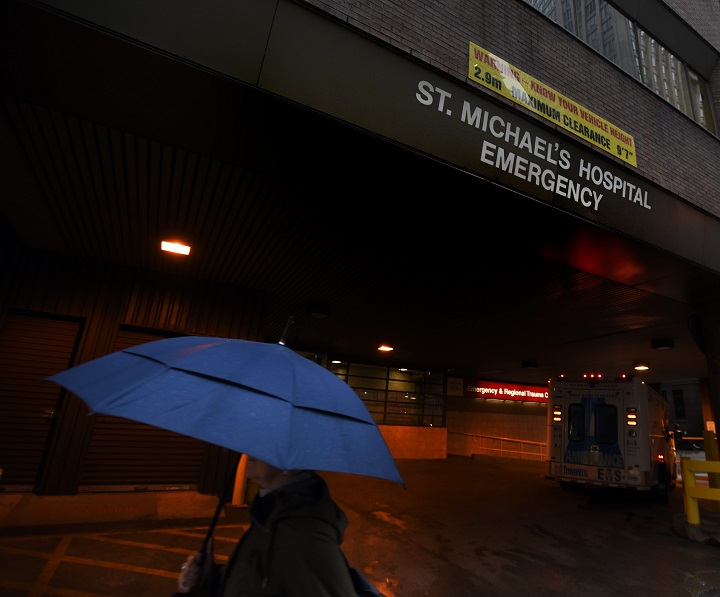TORONTO – A Toronto hospital says it plans to create the world’s leading treatment and research centre for multiple sclerosis.

St. Michael’s Hospital says the BARLO MS Centre will occupy the entire top two floors – about 2,300 square metres – of a 17-storey tower under construction at the downtown Toronto facility.
The hospital says it already has the largest multiple sclerosis clinic in Canada, with about 7,000 patients, and is home to some of the world’s leading MS clinicians and researchers.
The $30-million BARLO MS Centre is expected to open in 2020 and focus on patient-centred, personalized care and applying and generating leading-edge research.
READ MORE: EXCLUSIVE: Experts, patients call for more treatment options for progressive MS
MS is an autoimmune disease of the central nervous system that can cause symptoms such as extreme fatigue, lack of co-ordination, weakness, tingling, impaired sensation, vision problems, bladder problems, cognitive impairment and mood changes.
It is known as “Canada’s disease” because the country has the highest prevalence of the neurological disease in the world, with one in every 340 Canadians living with MS. It affects three times as many women as men.
“Our goal in creating the world’s premier multiple sclerosis centre is to stop the disease and provide the best clinical care and outstanding research,” Dr. Xavier Montalban, a Spanish clinician and researcher recruited to lead the centre, said Wednesday in a release.
READ MORE: University athletes with concussions still show changes in the brain after medical clearance to play
“Every day, three more Canadians are diagnosed with multiple sclerosis,” Montalban said. “Early diagnosis means we can start people on promising new treatments and give them hope they can live fulfilling and productive lives.”
Montalban said the centre will offer “one-stop care” for patients who will be diagnosed, treated and offered the opportunity to participate in research, all in the same location.
The centre will have its own infusion clinic, so that patients can receive more of the new treatments that have been developed in the last decade, many of which are given intravenously.
- Health task force blasted over ‘dangerous guidance’ for cancer screenings
- Dentists hesitant to sign up for federal dental plan; seniors advised to look at all options
- David Chang’s Momofuku to stop ‘chile crunch’ trademark battle after outcry
- Over 25% of young Canadian deaths linked to opioids amid pandemic: study



Comments